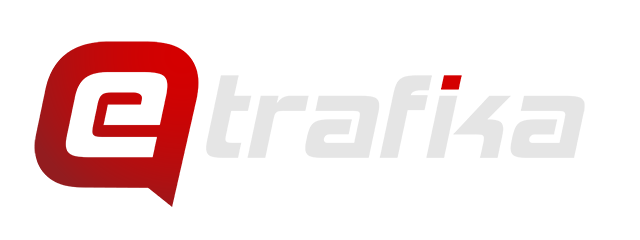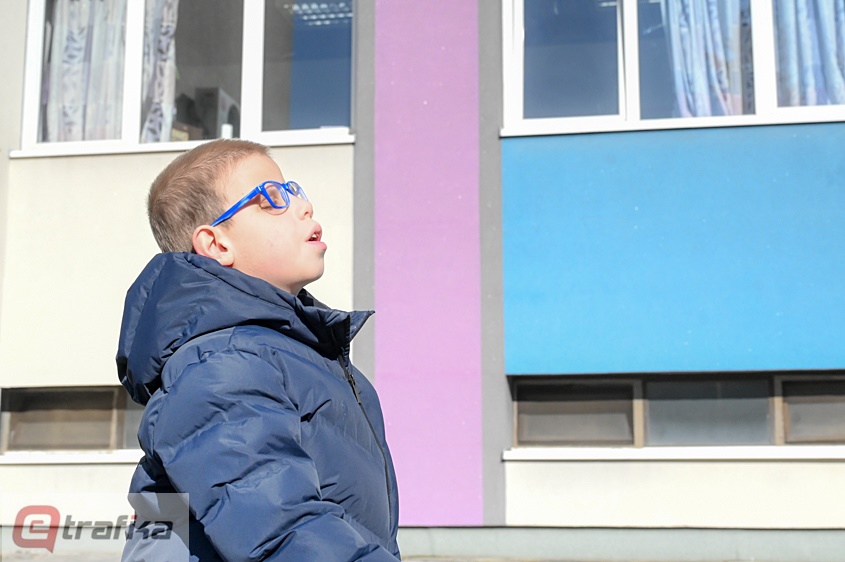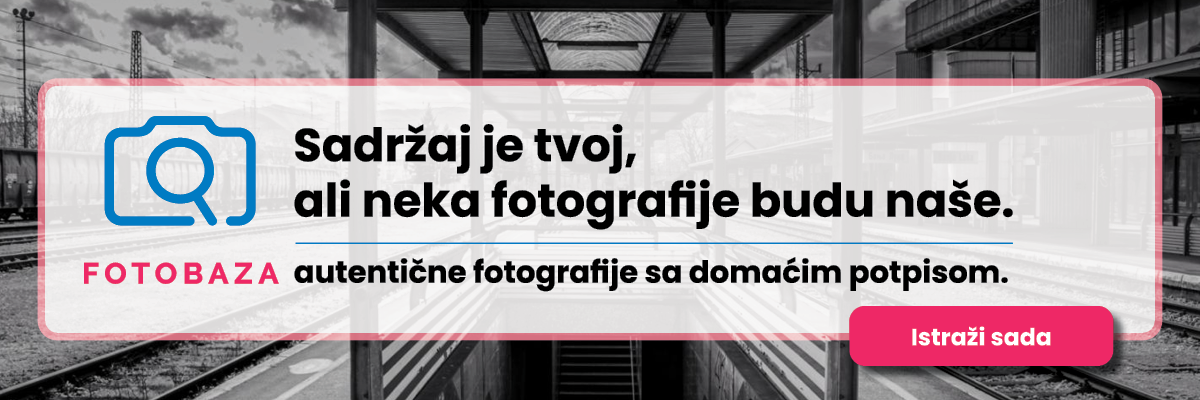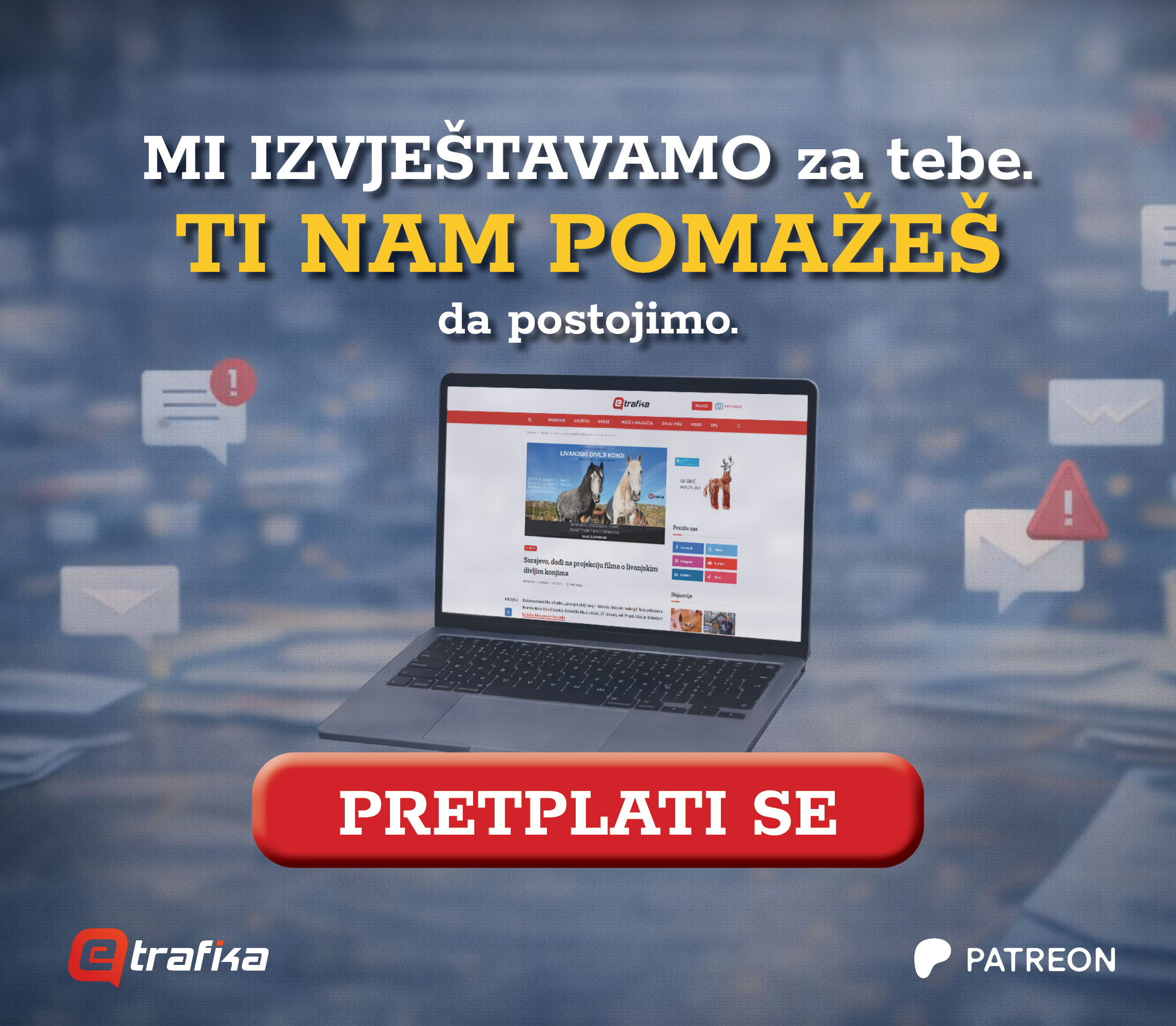It is lunch time in the Sarajevo Centre for the Blind and Visually Impaired Children and Youth. In its structure, this school has a special class, consisting of only three pupils. Andrija Jovovic, an eight-year boy, is one of them.
Written by: Vanja Stokic; Photo and video: Ajdin Kamber
The classroom he is in is far from being a usual one. There are no books or calculators here. Not even a school board. Instead, there is a swing hanging from the ceiling. There are hearing aid devices on the table. Andrija enters the classroom together with his teacher and two peers. He is cheerful and he gets on the swing immediately.
His father, Ljubomir Jovovic, explains to us that Andrija has a very rare disease, called Verheij syndrome. He cannot speak, he started to walk late, and his vision acuity on one eye is reduced to only 5%. But what is most important is that he does not have any health problems which are typical for this syndrome: heart defects, urinary tract and kidney related problems. It is not known how many people are affected by this syndrome, given that it was discovered only in 2016. At that time, Andrija was the only person in Europe suffering from the disease.
After his school time is over, the Jovovic family welcomes us into their home. Andrija's mother, Olivera Jovovic, tells us that this disease occurs during the foetal development. The reasons are still unknown. The tests have shown that the boy has not inherited the disease.
„Not everyone has the same symptoms. Everyone is unique in his own way. Most are affected by visual impairment. Psychomotor development is slowed down, and a typical symptom is delay in speech development. Still, all this is individual. For example, our Andrija has visual impairment on both eyes. He is totally blind on one eye, and he can see only 5% on the other eye, which is very little. The entire eye is damaged, along its length, and his psychomotor development is delayed“, Ljubomir explains.
The path towards getting a diagnosis was very long. The tests performed in BiH and Slovenia showed everything was all right, but the isolated DNA was then sent to the Barcelona Institute.
„The doctor from the Banja Luka Clinical Centre told us that it was an extremely rare disease and that, according to her knowledge, no one from this region, both the Balkans and Europe, was suffering from it. For us, as parents, it was an enormous shock. Because it was an unknown disease, because all information we could get were so superficial, because we did not know what it involved and what kind of consequences it might cause. A huge shock“, says Ljubomir.
They got the diagnosis when Andrija was three. Due to the fact that there was no other case registered in Europe, the Jovovic family had no one to approach for an advice. The situation is nowadays different. The families communicate with each other and mutually support each other through social networks.
„Last year there was a certain number of new cases recorded in Italy, Germany, Scandinavia. Majority of those who are diagnosed with the disease are from the United States of America, and Canada. The parents of such children have a different approach to the world. Different methods, different rights. Both parents and children“, claims Ljubomir.
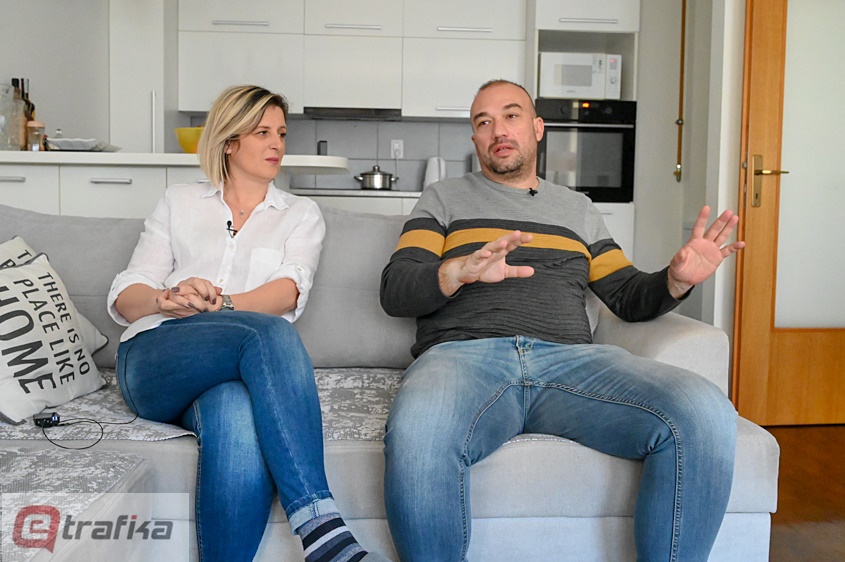
When he talks about his son, he says that Andrija likes other children and likes to be in the crowd. He does not interact with others, but just enjoys being there. He is cheerful and is very attached to his parents.
„He is good-natured, not aggressive at all, has no mood swings or anger outbursts. Of course, he has his own needs and sometimes gets angry, but is generally a good kid“, as Olivera describes.
Verheij syndrome is characterized by a very high level of pain tolerance. Given that Andrija still does not speak, the parents are under a lot of stress each time Andrija gets sick. And that used to happen a lot.
„They all have swallowing problems, difficult food intake. Right now he does not have such problems, but he had them when he was younger. He had huge problems with food intake. Serious respiratory problems. Problems with suffocation, laryngitis. It was a real suffering for us. Especially because of the fact that we had no possibility to get a treatment for him. Constant struggle in hospitals. The entire family suffered because of that, including the wife. A huge burden. Lately, his immune system has improved, and he has become a bit stronger. So, the situation is different now“, Ljubomir explains.
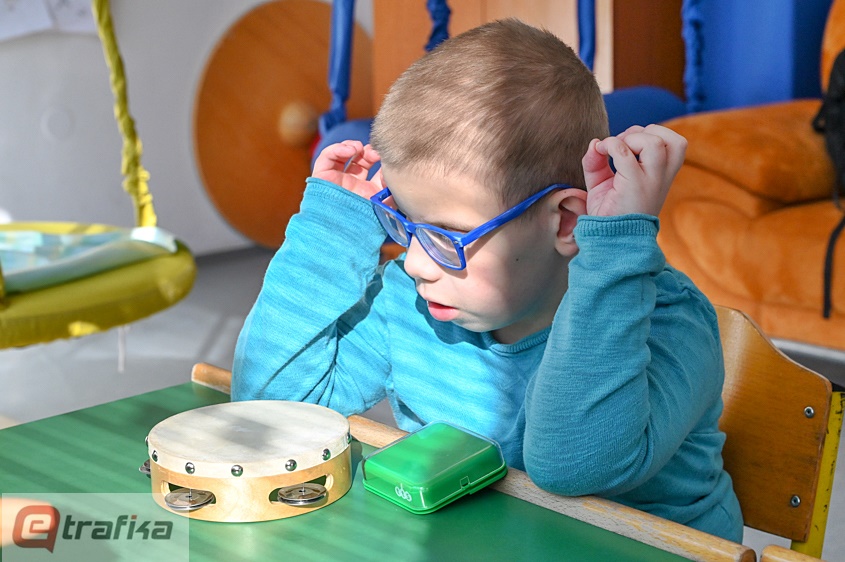
The RS Solidarity Fund does not cover the costs of experimental treatment, therefore the family had to personally pay for the optic nerve laser stimulation in order to at least slightly improve his eyesight and prevent further deterioration.
„The perception of Andrija’s vision by healthy people is – blindness, that is what it is. But he is managing somehow, and that therapy was useful – we took him there at our expense, of course. He was supposed to have three therapies in one year. We had to go to Novi Sad, spend 10 days there, because the therapy could not be uninterrupted, and if it was stopped for just one day it would be unsuccessful. It was us who had to cover the food costs, accommodation costs, everything. Once you calculate all this, it is a significant expense”, says Olivera.
The pandemic and the excessive burden on the family budget forced them to stop taking Andrija to this treatment. In a family where only one parent has a job, and the other one takes care of a child it is hard to provide funds for all that.
„And plus the medications which he had to use at the time of stimulation, and which we had to buy on our own, could only be found in Russia. There are injections which he had to take, and oral drugs for the preservation of optic nerve. And all these are very useful as they prevent further progression“, explains Ljubomir.
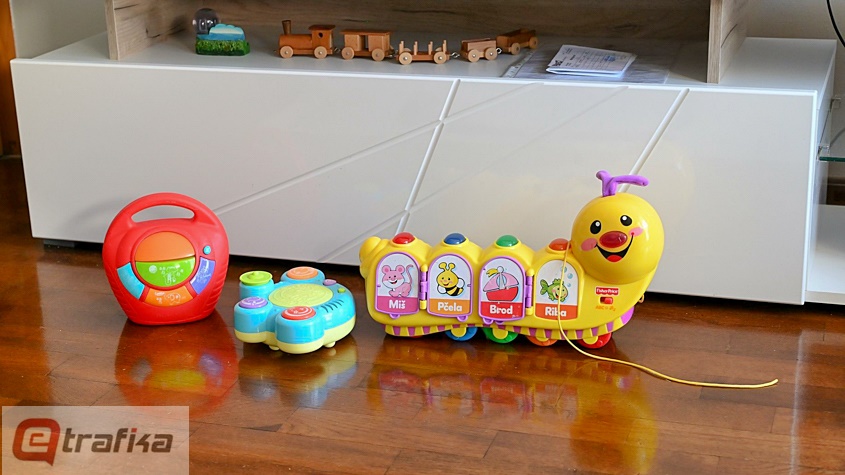
At the recommendation of doctors, Andrija wears special, flexible spectacles so that he would not hurt himself. The family has a right to a refund of these expenses, but not to the full amount.
„We presented an invoice for two pairs of his spectacles, the real cost of which was higher than the one show on the invoice, 200 something BAM. We received a refund of 35 BAM only. So, you tell me, should I exhaust myself fighting for a refund of these spectacles? The frame for the glass was refunded in the amount of 10 BAM, although its price was 130 BAM. We did not buy this frame to make him look pretty, but because he needed it“, explains Olivera.
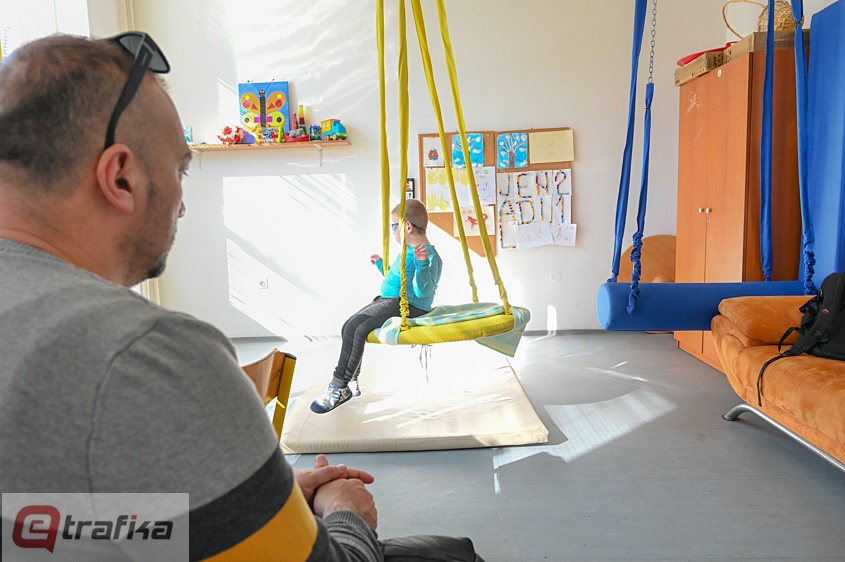
All this is quite tiring for parents, because apart from taking care of their child and dealing with other matters requiring a lot of time and energy, they also have to fight with the institutions. The Health Insurance Fund covers his regular treatment, just like it does for any other child. But, parents do not get much use out of it.
“There was a therapy he had to use for the laryngitis attack, which used to be very often, regular and traumatic. For example, he had to use corticosteroids that we could not get a refund for, and we simply bought them, without any reimbursement. The price for five pieces is 35 BAM. And this attack would last for five days, sometimes even longer. It was the biggest expense. No other medications or stronger antibiotics would help. Whenever he needed this therapy we had to pay for it. Each medication for inhalation had to be purchased by us. We also bought an inhalator, aspirator, so that he would not have to stay in the hospital, but instead do inhalations at home. And we just simply had no more strength to fight for a refund”, both of them say.
Lately there has been some progress, but it is still insufficient. The quality of diapers they get has improved. Child allowance has increased from 90 to 170 BAM. Also, physical therapy is covered by the insurance. The opening of the centre for education and rehabilitation would be of a great help.
„It is possible to work with these children. You saw it in his school. He does not learn math or writing there. He is not capable of that, but he is being taught how to take care of himself. And this is very important. To teach a child to wash his hands, to use the toilet, to eat by himself. We teach him all this at home, but it is not the same. He learned a lot in this institution, more than he did from us and with us. For example, he started to walk there. We went there one day, and saw him walking down the corridor. Amazing! We looked at each other and continued watching him as he walked back. Can you image“, Olivera describes.
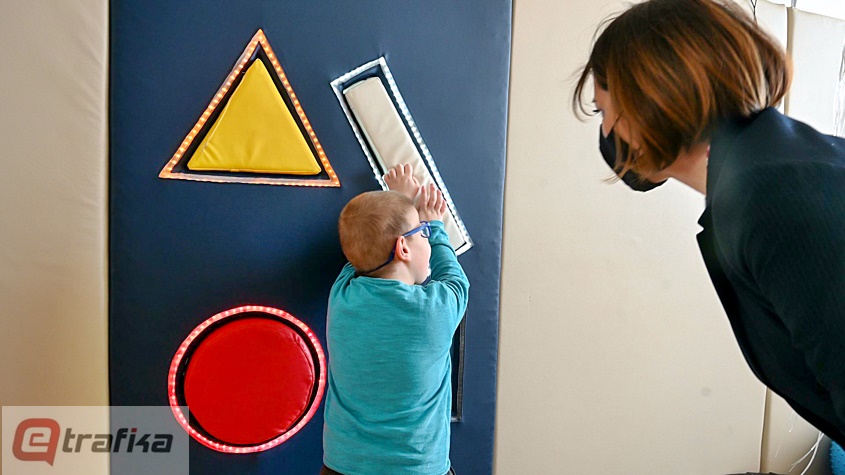
These families also need help with everyday tasks. Help in terms of services that parents could use one they have some obligations not related to their children.
„We cannot function as a normal family. We cannot go to someone's wedding, cannot go to a funeral, not to mention that we cannot have an evening out. This means that automatically we are unable to have a normal life. If we could just have some assistance in the house, someone to baby sit our child. That is what I am referring to. For example if I get sick that someone comes to our house to take care of our son“, Olivera explains.
Ljubomir adds that children deserve such services, as well as parents.
„If parents are occupied with round-the-clock child care, it is impossible to have some leisure time, your own life. There is over exhaustion, because even parents need some rest and some kind of relaxation, an exhaust valve, because all this is very demanding. These children require years and years of care. Especially by their mothers, who are all the time with them. Most of these women do not have a job, and they could and should have it. For example, the state could recognise their needs. The state could recognise this by finding employment for these parents. By finding them a half-day work which would be paid as a normal job with full working hours. It means that legal solutions can be found, but right now there is no model of special hiring of these parents“, he says at the end of our interview.

